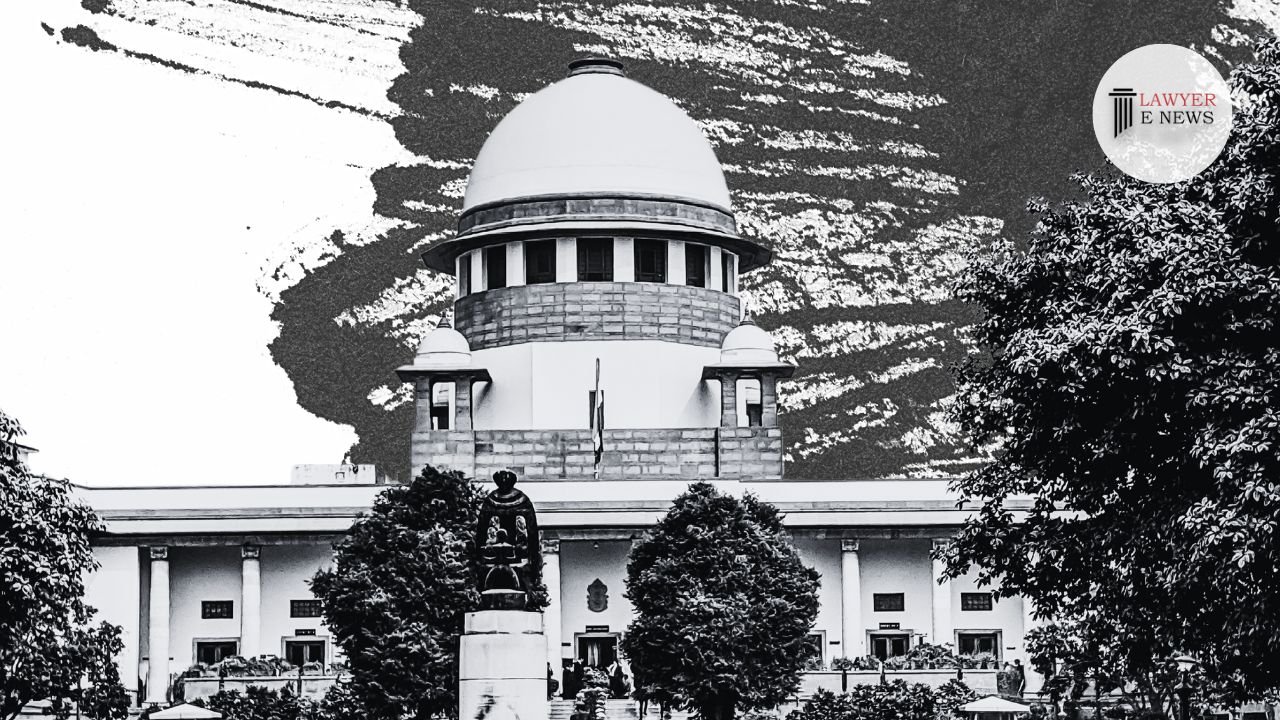-
by Admin
15 February 2026 5:35 AM



“Mental cruelty and lack of bona fides by the husband justify the wife’s refusal to return to the matrimonial home.” – Supreme Court in a landmark judgment restored a wife’s right to maintenance despite her non-compliance with a decree for restitution of conjugal rights secured by the husband. The Court ruled that non-compliance with such a decree does not automatically disentitle a wife from claiming maintenance under Section 125(4) of the Code of Criminal Procedure, 1973 (Cr.P.C.), if she had sufficient and valid reasons to stay away.
The decision came in the case of Rina Kumari @ Rina Devi @ Reena vs. Dinesh Kumar Mahto @ Dinesh Kumar Mahato and Another, where the wife, Reena, was awarded ₹10,000 per month maintenance by the Family Court. This order was overturned by the Jharkhand High Court, which relied on the restitution decree to deny her maintenance. The Supreme Court set aside the High Court’s order, emphasizing the need for a contextual assessment of the wife's refusal to return to the matrimonial home.
Delivering the judgment, Justice Sanjay Kumar observed that Section 125 Cr.P.C. aims to protect vulnerable wives, children, and parents from destitution and vagrancy. The provision is not punitive but remedial in nature, ensuring that individuals abandoned or neglected by those with sufficient means receive basic sustenance.
Quoting its earlier ruling in Chaturbhuj vs. Sita Bai (2008), the Court stated:
“The object of maintenance proceedings is not to punish a person for his neglect but to prevent vagrancy and destitution by ensuring food, clothing, and shelter through a speedy remedy.”
The Court also referred to Bhuwan Mohan Singh vs. Meena (2015), where it had held:
“The concept of sustenance is not to lead a life of an animal, but to live with dignity.”
The Bench clarified that a restitution decree is relevant but not determinative in maintenance proceedings. Such a decree cannot by itself invoke the disqualification under Section 125(4), unless the wife’s refusal to return to the matrimonial home is shown to be willful and without sufficient reason.
The Court found that Reena’s refusal to return to the matrimonial home was justified due to mental cruelty inflicted by her husband. It emphasized that mental cruelty must be assessed cumulatively and not based on isolated incidents.
Reena suffered neglect and ill-treatment, including being denied basic facilities such as access to proper cooking arrangements and a toilet in the matrimonial home. More significantly, the husband, Dinesh Kumar, failed to support her during a miscarriage in 2015, did not bear her medical expenses, and did not visit her in the hospital.
The Court observed:
“Mental cruelty is a state of mind and can only be appreciated on cumulatively assessing the attending facts and circumstances in which the two spouses have been living.”
Applying this principle, the Court held that the husband’s neglect and behavior justified the wife’s decision to stay away.
The Court criticized Dinesh Kumar for failing to act on the restitution decree he had secured. Despite the decree for restitution of conjugal rights passed on April 23, 2022, he made no effort to reconcile or execute the decree under Order XXI Rule 32 of the Code of Civil Procedure, 1908. Nor did he seek a divorce under Section 13(1A)(ii) of the Hindu Marriage Act, 1955.
The Court remarked: “The husband’s inaction after obtaining the restitution decree clearly reflects his lack of bona fides. This decree appears to have been a mere ploy to evade responsibility towards his wife.”
Further, the Court observed that Dinesh Kumar’s failure to cross-examine the wife’s witnesses in the Family Court indicated that he did not genuinely contest her claims of cruelty and neglect.
The Court clarified that Section 125(4) Cr.P.C. disqualifies a wife from claiming maintenance if:
She is living in adultery.
She refuses to live with her husband without sufficient reason.
She and her husband live separately by mutual consent.
However, it held that the disqualification under Section 125(4) does not automatically apply in cases of non-compliance with a restitution decree. Instead, the Court must independently assess whether the wife’s refusal to live with the husband was justified. The judgment emphasized that findings in a restitution proceeding are relevant but not binding in maintenance proceedings, as both operate in separate legal spheres.
The Supreme Court allowed Reena’s appeal, restored the Family Court’s maintenance order, and directed the husband to pay ₹10,000 per month from August 3, 2019, the date of the maintenance application. Arrears of maintenance were ordered to be cleared in three installments by December 31, 2025. Future maintenance payments were directed to be made by the 10th day of each month.
The Bench concluded: “Maintenance laws are enacted as a measure of social justice to provide recourse to dependent wives and children, preventing them from falling into destitution. A restitution decree alone cannot negate this essential objective.”
Date of Decision: January 10, 2025
